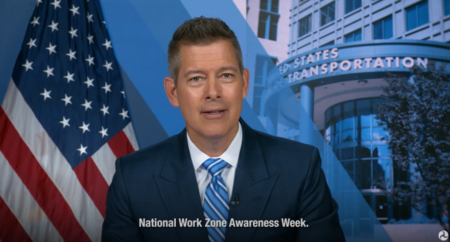Eight EU transport ministers have called on the European Commission (EC) to ‘speed up’ plans to upgrade vehicle safety standards, saying road safety should be a ‘top priority’ and ‘ambitious’ new standards are needed ‘to help Member States halve the number of road deaths by 2020’.
In a letter to the European Commissioner for industry, El?bieta Bie?kowska, the transport ministers of Austria, Belgium, France, Germany, Ireland, Italy, Luxembourg and the Netherlands have highlighted statistics showing that 26,000 people die on European Union roads annually, with at least 135,000 suffering serious injuries. The letter states that progress on reducing these numbers has been dramatic over the last two decades, but has slowed to a halt and even gone into reverse in some countries in the last three years. Improved vehicle safety standards are critical to reducing deaths and serious injuries, but the EU’s rules have not been updated since 2009.
In December 2016, the EC published a list of 19 lifesaving safety technologies that could be made mandatory on new vehicles in proposals expected later in 2017. At the time, the European Transport Safety Council (ETSC) said several critical areas for action were missing, and the proposed timescale was far too long considering that most of the technologies are already available today.
Commenting on the letter, Antonio Avenoso, executive director of the ETSC, said, “It’s great to see transport ministers demanding faster action on vehicle safety in Europe. They recognize that, while national governments can take many measures to improve road safety, improving vehicle safety is absolutely critical. Tougher European standards are urgently needed to ensure that effective, proven and widely available technologies like over-ridable intelligent speed assistance, automated emergency braking and advanced seat-belt reminder systems are fitted as standard, not as optional extras.”
The EC-funded Transport Research Innovation Portal (TRIP) is also calling on EU members for greater collaboration on transport infrastructure research in Europe, identifying areas where further innovation, research and funding could improve economic and social cohesion. In a new Research Theme Analysis Report, TRIP says robust and efficient transport infrastructure is essential to the economic development and prosperity of Europe and its citizens. However, transport infrastructure research and development has traditionally been a national pursuit, with limited impact on development at a European level.
The new report provides a comprehensive review of multimodal transport infrastructure research performed by European businesses, public organizations and academic institutions, offering a snapshot of the current research and innovation landscape to help focus policy makers, stakeholders and researchers on areas to improve the accessibility and performance of transport systems across Europe. It also identifies areas where further research is required, such as in developing policy that delivers fair, efficient and productive pricing for users.
Gareth Horton, TRIP’s lead analyst, said, “By sharing research on success in technology and policy development and highlighting areas where research gaps exist, we can help to break down barriers between transport stakeholders and foster greater collaboration across Europe.”




